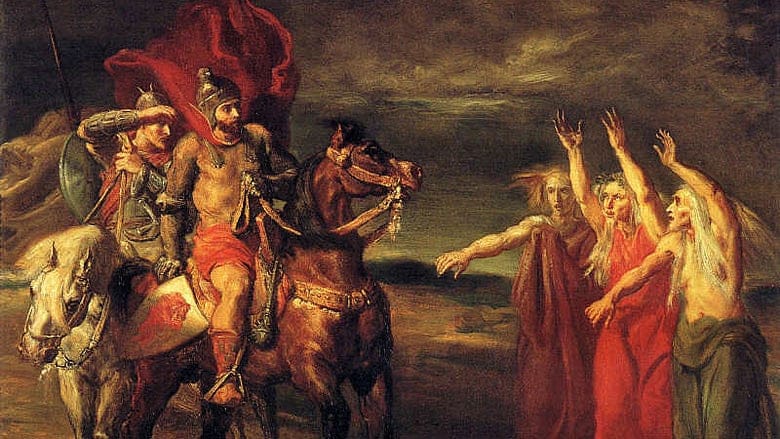Macbeth and the tyranny of unchecked power

The month of May marks the 400th anniversary of Shakespeare's death. His harrowing tragedy, Macbeth, depicts the fall of a once valiant general into a paranoid, murderous tyrant. In the play, Shakespeare warns his audience about the destructive force of unchecked power. He shows that tyrants abhor freedom; unless resisted, they boldly destroy anyone who thinks or behaves differently. The lessons are as fresh today as they were in Shakespeare's time.
Shakespeare wrote Macbeth in c.1606. He based the play on the history of the British monarchy recorded in Raphael Holinshed's Chronicles (2nd ed. 1587). However, the playwright modified the Chronicles' historical account in deference to his patron, King James I. Before uniting the British under a single crown in 1603, the monarch was known as King James VI of Scotland. King James claimed that his lineage could be traced to the Scottish ruler, Banquo. Unlike the Chronicles' depiction of Banquo as an accomplice to King Duncan's murder by Macbeth, Shakespeare's character remains loyal to his ruler. Literary critic William Empson noted, "Shakespeare could not possibly have intended to show to James I the supposed founder of his line as a criminal."

